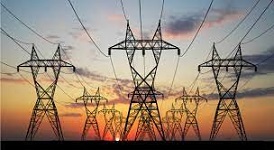The Economic Commission for Africa (ECA) on Tuesday 22 June 2021 unveiled findings of a study titled “Energy Prices in Africa: Transition Towards Clean Energy for Africa’s Industrialization.”
The presentation, which was made during a virtual ministerial meeting, indicates that 600 million people in Africa do not have access to electricity and 900 million have no access to clean cooking fuel. Meanwhile, electricity access rates in 24 countries are below 50%.
“There’s no way Africa can build forward better if we do not make adequate investments in energy and ensure affordable access for all,” said ECA Executive Secretary, Vera Songwe. The UN Under-Secretary-General urged countries to ensure that there’s cost reflective pricing in the energy sector.
The report cites Liberia, Malawi, Central African Republic, Burundi, and South Sudan as having stagnated or reversed in electricity access. Countries like Nigeria, DRC and Ethiopia reportedly have the biggest electricity access deficits.
“Access to cheap and clean energy is an essential component of Africa’s transformation and industrialization,” said Oliver Chinganya, Director of the African Centre for Statistics (ACS), who moderated the session.
The ACS Director said, “in the context of AfCFTA deployment and implementation, supplying economies with affordable fuel is integral to supporting actions for faster achievement of the Sustainable Development Goals and Africa’s Agenda 2063.”
The report deplores the fact that Africa relies mainly on fossil fuels and biomes instead of diversifying its primary energy supply, given its plethora of resources (renewable and non-renewable).
“Households use 86% of biofuel and waste energy for cooking, while the transport sector consumes 78% of oil. Natural gas is mainly used in industrial sector.”
In his presentation, Anthony Monganeli Mehlwana, an ECA Economic Affairs Officer, highlighted the “urgent need to invest in electricity infrastructure, diversify electricity supply and embrace modern renewables.”
In terms of prices, Mr Mehlwana said “Levelized Cost of Energy (LCOE) or fossil power plants is more expensive” than wind and solar.
“Onshore wind costs $59 per MW while utility solar PV costs $79 per MW. Meanwhile, the cost of coal is $109 per MW and natural gas stands at $74 per MW.”
He pointed out that “high energy production costs, transmission and distribution losses (18-25%) means that utilities need to be constantly bailed out and subsidies implemented for users.”
At this rate, and according to the SDG 7 tracking report, Africa will not meet the SDG 7 targets due to limited supply and access to electricity. About $40 billion worth of investments per year is needed to meet the continents energy needs.
The report recommends that countries must provide an enabling environment for crowding-in private sector investments in electricity sector; apply cost reflective tariffs while paying attention to efficient generation of electricity to lower the costs; and provide incentives and mechanisms to increase the share of renewable energy in the power systems.
The study also highlights the need for countries to introduce natural gas as a transitionary fuel to replace coal and facilitate full deployment of renewables
The webinar was an opportunity for the ECA to urge ministers to play a role in increasing energy investments, and paying attention to the determinants of energy prices, lowering of cost of production and tariffs-setting methodolog.
It was a joint initiative of ACS and ECA’s Private Sector Development and Finance Division, within the framework of a ministerial series by the ECA Price Watch Centre.

